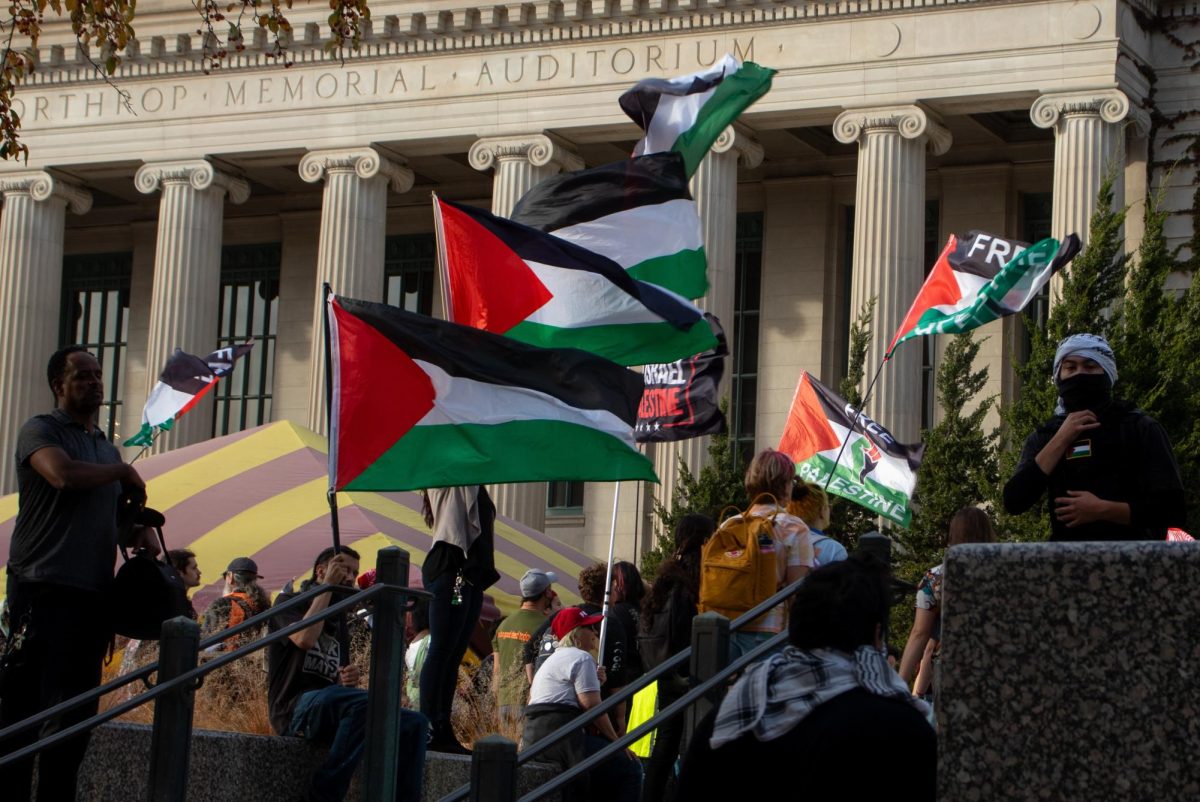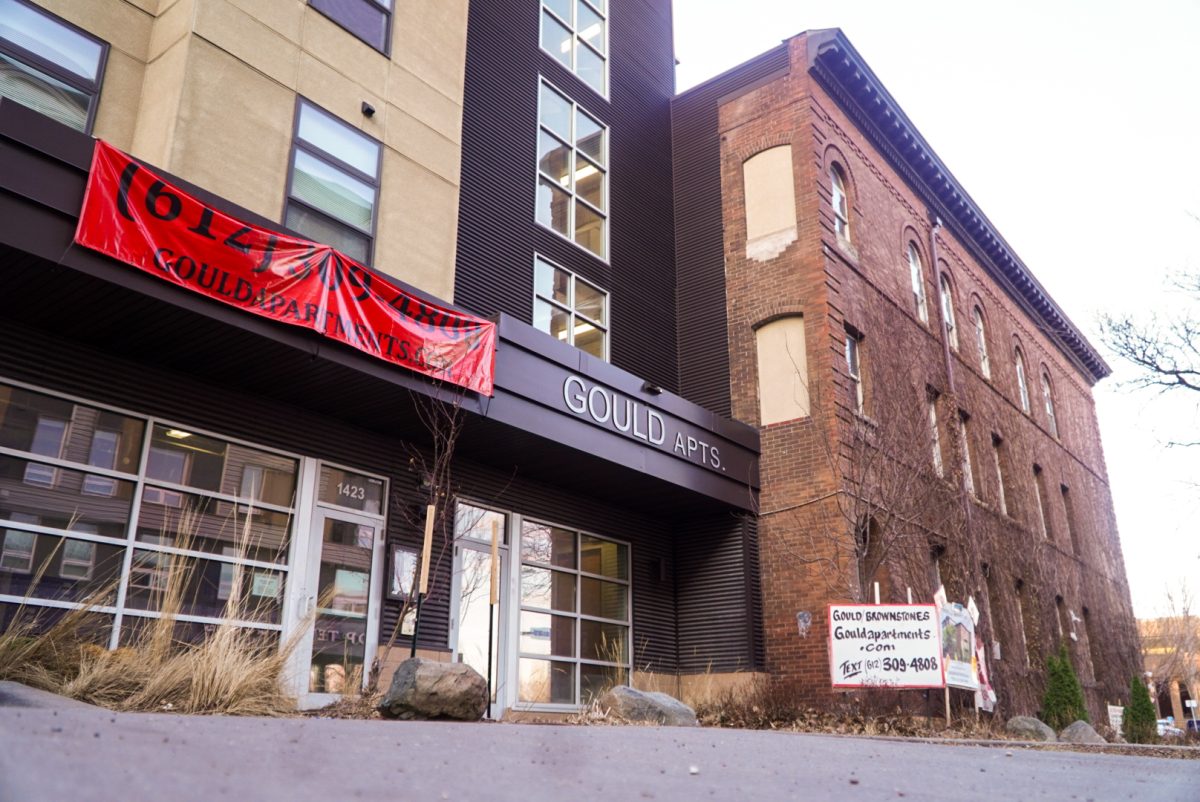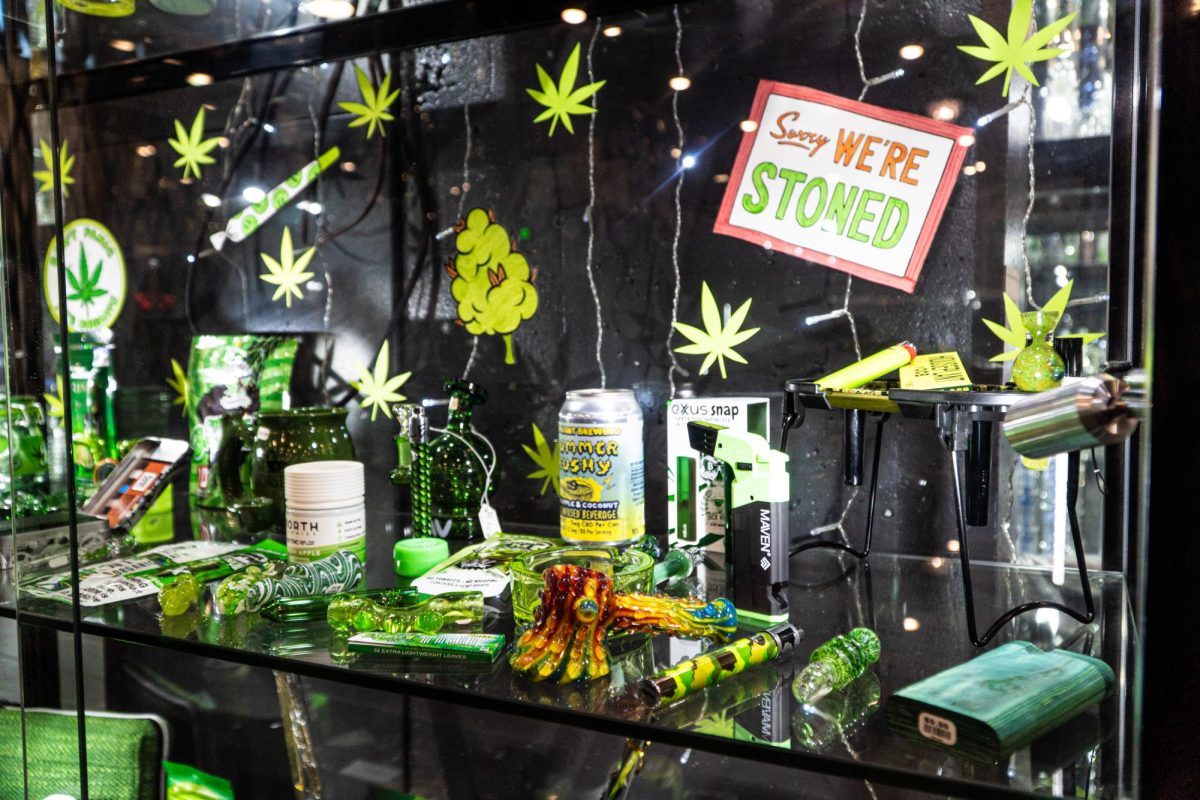The Minneapolis City Council voted 7-5 Tuesday on a resolution urging the University, Hennepin County and city attorneys not to pursue charges against those arrested during the Oct. 21 student protest.
Pro-Palestine protesters from the University’s Students for a Democratic Society (SDS) chapter occupied Morrill Hall on Oct. 21, leading to the University of Minnesota Police Department officers arresting 11 students as well as briefly detaining a Minnesota Daily reporter.
Students and alumni involved in the protest were evicted from university housing and are currently being charged restitution payments of $5,000 each, Council Member Robin Wonsley (Ward 2) said during the meeting. One alumnus was also charged with a felony.
“The University of Minnesota recently celebrated a student alumni from the 1970s that pushed the University to create the Department of African American Studies,” Wonsley said in the meeting. “And mind you, that student participated in action that literally used the same exact tactics that the students who are currently being stringently punished for doing the same efforts in solidarity for Palestine.”
Wonsley said it is crucial the city, county and University do not criminalize nonviolent student protests.
“I don’t want to see the City Council be complicit in criminalization of students engaging in nonviolent anti-war protests,” Wonsley said.
Minneapolis Mayor Jacob Frey said in a statement released Tuesday that the city council set a bad precedent with the resolution and that he would veto it.
“The council’s resolution risks setting a disturbing precedent that must apply to all groups evenly regardless of the cause they are protesting,” Frey said in the statement. “It is concerning to me that any council member could view this as acceptable and I will be vetoing the resolution without hesitation.”
The council members who voted yes:
- Elliott Payne (Ward 1)
- Robin Wonsley (Ward 2)
- Jeremiah Ellison (Ward 5)
- Jamal Osman (Ward 6)
- Jason Chavez (Ward 9)
- Aisha Chughtai (Ward 10)
- Aurin Chowdhury (Ward 12)
The council members who voted no:
- Michael Rainville (Ward 3)
- LaTrisha Vetaw (Ward 4)
- Katie Cashman (Ward 7)
- Emily Koski (Ward 11)
- Linea Palmisano (Ward 13)
Council Member Andrea Jenkins (Ward 8) was not present at the meeting and did not vote.





















jog
Dec 10, 2024 at 9:58 am
We can thank current SDS members/supporters for making future student protests either unlikely or scenes of violence and police brutality. Most undergrads and probably zero faculty are likely to come out and protest knowing that the police will be there, ready to pounce, leaving protesters with police records and other long-lasting and unpleasant consequences. But SDS wants a plaque by a building to commemorate the 10/21 action. Right.
While I’m typing, can someone from SDS weigh in on why y’all spray painted the security cameras? What were you planning to do during the occupation that you didn’t want the cameras to capture?
Matt
Dec 10, 2024 at 7:40 am
The Minneapolis City Council should worry about all the issues going on in the city and stop trying to control issues that have nothing to do with. The current council members are a bunch of idiots, they are the main reason Minneapolis has all the problems they do. Was a nice city years ago but not any longer. Can’t belive these clows were elected.
Mike
Dec 9, 2024 at 9:49 pm
The Council’s resolution raises significant concerns and is troubling. Its purpose seems to be pressuring the University of Minnesota (UMN) to abandon criminal proceedings against individuals who jeopardized the safety of staff and caused damage to university property. The takeover disrupted operations across multiple buildings, bringing campus life to a standstill. Such an event could have easily turned violent—what might have happened if someone had attempted to resist? Even more concerning is that the individuals who occupied Morrill Hall have openly stated their intention to repeat these actions. Granting them leniency would only invite further disruptions.
President Cunningham’s handling of this situation will set a critical precedent for the campus’s future. The majority of UMN students, faculty, and staff are focused on their academic work and value a secure and peaceful environment. It is crucial to respond firmly, ensuring that criminal behavior carries real consequences. This is the only way to prevent not just a repetition of the Morrill Hall incident but potentially an even more severe escalation.
Greg
Dec 9, 2024 at 2:57 pm
This “protest” was not non-violent. It involved barricading entrances and exits to Morrill Hall, breaking windows, security camera tampering, and restricting employee activity and movement. This is illegal activity, not protected.
Enn
Dec 9, 2024 at 2:07 pm
Where is the line between “peaceful” and “non-violent” and “violent” protests? Barricading and locking doors, smashing glass, may not be “violence “directed at an individual but they sure are not peaceful. Those actions scared and intimated building occupants. Someone could easily have thought it was an active shooter type situation and taken drastic action to escape. (think jumping out a second story window or suffering a heart attack!) The line for a peaceful protest was crossed during this event.
“Wonsley said it is crucial the city, county and University do not criminalize nonviolent student protests.” Is blocking building doors and smashing not criminal behavior???
It appears the City Counsel does not care about the building occupants safety nor the financial ramifications. What about if/when the City Counsel’s building gets occupied and glass broken? What then? The City Counsel has protections even against peaceful protests! Google 2/23/2023 Minneapolis City Counsel meeting protests. The protesters were told the law does not allow citizens to disrupt the meeting and they would be removed. Police arrived and the meeting was put into recess until the protesters could be cleared. Why should citizens be able to disrupt and destroy any form of business?
Steve Hauser
Dec 9, 2024 at 1:01 pm
The Minneapolis City Council should stay in their lane.
As far as I’m concerned, the protestors can protest on Northrop Mall as much as they want, but on October 21, they entered Morrill Hall, blocked exits, broke glass and defaced property. In doing so, they “stepped over the line”, and they need to be held accountable for that.
Susan Spiegel Pastin
Dec 9, 2024 at 12:29 pm
I think the students are on the right side of history here. But I also think they should not do vandalism and should pay for any damages they caused.
It seems to me evicting them from student. Housing might be too harsh.
KG
Dec 8, 2024 at 10:16 pm
The Minneapolis City Council resolution is both misguided and deeply unfortunate. Its intent is to pressure UMN into canceling criminal proceedings against individuals who endangered UMN staff and destroyed university property. During the takeover, multiple buildings were shut down, and normal university operations were disrupted. The situation could have easily escalated into physical violence. What if someone had resisted the takeover? How would the protesters have responded? Police intervention was required to restore order, leading to arrests and charges. Those who brazenly seized Morrill Hall have openly declared their intent to repeat their actions. Why should these individuals be excused from accountability, only to disrupt the campus again?
While Wonsley has drawn a parallel between the Morrill Hall takeover of 2024 and that of 1969, the two events are fundamentally different. The 1969 incident addressed a well-known domestic issue, while the 2024 protest was led by a small group of extremists disrupting the UMN campus to support Hamas—a terrorist organization responsible for the October 7, 2023, attacks on democratic Israel. These attacks involved the systematic murder of civilians, the abduction of hostages, and the rape of women—acts that constitute genocide. Israel’s fight is against Hamas terrorists, not the Palestinian people. When Hamas lays down its weapons and releases the hostages, the war will end. The protesters in Morrill Hall, however, have aligned themselves with terror and violence.
This protest also serves as a test of UMN’s new president, President Cunningham. Notably, some individuals chose not to participate in the Morrill Hall protest, fearing potential consequences. For example, Michael Gallope refrained from signing the November 25 Op-Ed accusing President Cunningham of “Islamophobic rhetoric,” seemingly out of concern for his position as dean.
President Cunningham’s response to these events will set the tone for the future of UMN’s campus. Most of us at UMN are focused on our research, teaching, and studies and wish for a peaceful academic environment. A firm response is now necessary. Real consequences for criminal behavior are essential to prevent a repeat—or an escalation—of the Morrill Hall incident.